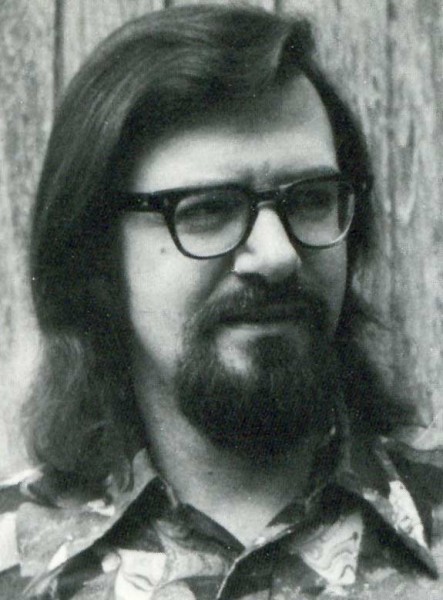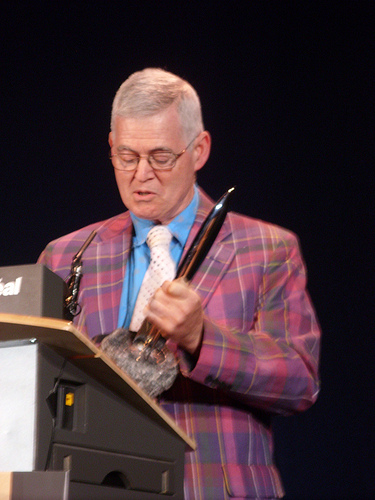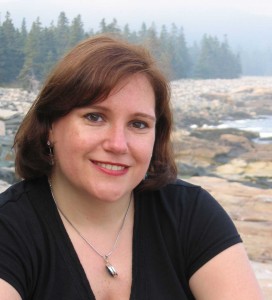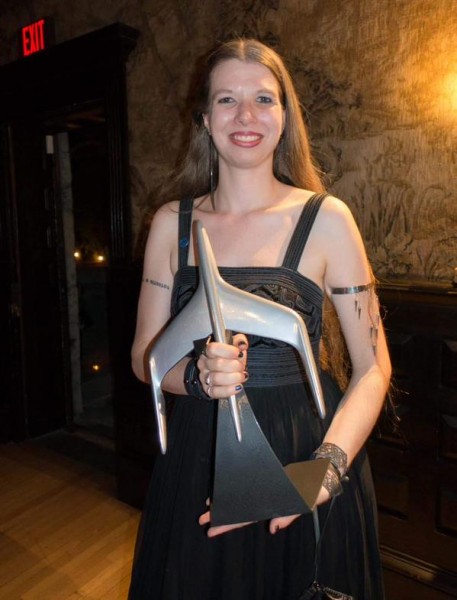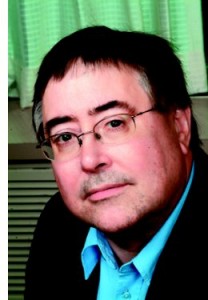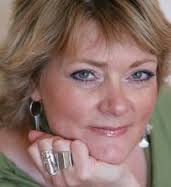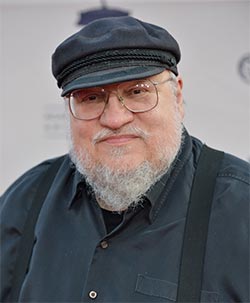
For all those who have been waiting for the t’other shoe to drop… I talked about some worthy choices for the Hugo for Best Professional Editor (Long Form) down below, so it behooves me to say a few words about Best Professional Editor (Short Form) as well.
This is the second category that was created when “Best Editor” was split in 2007, but in some ways it feels more like a continuation of the older category. Magazine editors almost always won Best Editor before the split, and of course magazine editors have dominated the new Short Form category as well… though not to the same extent. Anthologists, who were always eligible even before the split but almost never won, have been holding their own in recent years, mostly in the person of the redoubtable Ellen Datlow. Datlow has won Short Form three times since the split. Sheila Williams of ASIMOV’S has won twice, Gordon Van Gelder of THE MAGAZINE OF FANTASY AND SCIENCE FICTION has won twice, and Stanley Schmidt of ANALOG has won once… in his final year of eligibility, after his retirement was announced.
The “usual suspects” syndrome is strong in this category. Since the division, a whole new phalanx of bridesmaids has come forth. Jonathan Strahan, Neil Clarke, and John Joseph Adams have all been nominated multiple times, but none of them has ever taken home a rocket. Unlike Long Form, which has become a de facto lifetime achievement award thanks in large part to the example set by David G. Hartwell, none of the Short Form winners have ever retired themselves from the competition. Of course, some have been retired by, well, retirement… Stan Schmidt and Gordon Van Gelder, for instance, no longer edit ANALOG and F&SF, respectively, and are no longer eligible.
Last year, this was another category completely dominated by the Puppies. All five of the finalists were first-time nominees… which was good. But all five were from the slates, which was not so good. Four of the five were nonetheless legitimate nominees worthy of serious consideration: anthologists Jennifer Brozek and Bryan Thomas Schmidt, Edmund R. Schubert of ORSON SCOTT CARD’S INTERGALACTIC MEDICINE SHOW, and Mike Resnick of GALAXY’S EDGE. (Schubert subsequently withdrew his name from consideration, which was commendable, but he did it too late to be replaced on the ballot).
Conspicuous by their absence from the ballot were a number of past winners and runners-up, including Datlow, Strahan, Adams, Clarke, Williams, Anne Vandermeer, Gardner Dozois, and others, all of them pushed off the ballot by the Puppies. Which made the final ballot a bit of a joke. You’re going to give a Best Editor, Short Form award, but you’re going to exclude the most prominent and distinguished short fiction editors in the field? Sure. That’s like starting the NFL Playoffs by excluding the New England Patriots and Seattle Seahawks on the grounds that they’ve won too much lately. Hey, maybe those teams get eliminated along the way… as they did this year… but you have to at least let them in the tournament. To be the champ, you need to beat the champ… and in our field, the champion short fiction editors are folks named Datlow, Williams, Dozois, etc.
All that being said… the slates, by whatever means, did throw up some legitimate Hugo-worthy nominees in this category last year, though not as many as in Long Form. One of those stood well above the others, IMNSHO. The Hugo really should have gone to MIKE RESNICK. Resnick has a long and distinguished career as an anthologist, one stretching back decades, and while he has plenty of rockets on his mantle at home, and even more crashed upside down rockets on the shirts he wears at worldcon, he had never been recognized for his work as an editor before. In addition, Resnick had founded a new SF magazine, GALAXY’S EDGE; in an age when the older magazines are struggling just to keep going, starting up a new one is a bold act (maybe a little insane) that deserves applause. But even more than that, Resnick has been a mentor to generations of new young writers, featuring them in his anthologies and now his magazine, advising them, nurturing them, teaching them, even collaborating with them. His “writer babies,” I have heard them called. In a way, Resnick is a one-man Clarion. Finding and nurturing new talent is one of an editor’s most important tasks, and Resnick has been doing it, and doing it well, for decades. He got my Hugo vote.
He got a lot of other Hugo votes as well. But not enough to win. As with Long Form, this category went to No Award. The work that the Sad and Rabid Puppies began to wreck this Hugo category was completed by Steve Davidson of AMAZING, Deirdre Saoirse Moen, and the rest of the Nuclear Fans. Resnick was never part of the slates, fwiw. He took no part in the Puppy Wars on either side, preferring to stay above the fray. And he did deserve a Hugo. But guilt by association prevailed, and he was voted down with the rest. A real pity.
((FWIW, at my Hugo Losers Party at Sasquan, I presented an Alfie Award to John Joseph Adams, who had the highest number of nominations of all those pushed off the ballot by the Puppies. And some other folks, whose identity has yet to be revealed, later sent Mike Resnick something called a ‘Jovian Award,’ for having the most votes of those who lost to No Award. Both Adams and Resnick were robbed last year; the former by the Pups, the latter by the Nukes.))
Which brings us to this year. When I hope we do not make the same mistakes. Let us hope that we won’t need more Alfies or Jovians. Let’s give a Hugo to the best short fiction editor in our field.
There’s certainly no lack of worthy candidates. Starting with the magazine editors. SHEILA WILLIAMS is still at ASIMOV’S. At ANALOG we have a new editor, Stan Schmidt’s successor, TREVOR QUACHRI. There’s no new editor at F&SF as well: CHARLES COLEMAN FINLAY. Beyond the Big Three, we have the newer magazines and their editors: NEIL CLARKE of CLARKESWORLD, EDMUND SCHUBERT of ORSON SCOTT CARD’S INTERGALACTIC MEDICINE SHOW, WILLIAM SCHAFER of SUBTERREANEAN, and, yes, MIKE RESNICK of GALAXY’S EDGE.
Oh, and we must not forget the e-magazines. Especially not TOR.COM, which has become one of our field’s most important venues for short fiction. Tor.com has a legion of editors, though, so it’s a little harder to determine which one should be nominated.. if indeed you think the stories they’ve published are Hugo calibre. (Maybe someone from Tor will come and tell us?)
And then there are the anthologists. JOHN JOSEPH ADAMS, last year’s Alfie winner, stands at the forefront of that group, together with ELLEN DATLOW, GARDNER DOZOIS, and JONATHAN STRAHAN. But, hey, there are lot of good anthologies published every year, so plenty of other editors are eligible. It is hard to know who to nominate in Long Form, as we’ve discussed, hard to know who edited what. It is easy in Short Form. What was your favorite magazine? What was the best anthology you read last year? The name of the editor is right there.
Oh… and it would disingenuous of me not to mention that I am eligible for nomination myself in this category, on the basis of OLD VENUS, the original anthology I co-edited with Gardner. Now, I’m very proud of OLD VENUS, and I think there are a number of wonderful stories therein worthy of Hugo recognition that I hope you’ll remember when time comes… but I don’t really regard myself as a serious contender in Short Form. Maybe some other year, when I’ve had several anthologies published… but there was no new Wild Cards book in 2015, so OLD VENUS was my only qualifying work, and I only did half of that. If you really really loved OLD VENUS and think it was worthy of Hugo recognition, well, nominate the stories, and nominate Gardner Dozois… he deserves just as much credit for the book as I do, and he did lots of OTHER editing besides, including his mammoth and long-running BEST OF THE YEAR anthology, the assembly of which is a task that would make lesser men weep.
Gardner Dozois will certainly be on my ballot. So will Mike Resnick, and… some others.
If you agree, you should nominate them as well. If not, nominate someone else.
But nominate.



